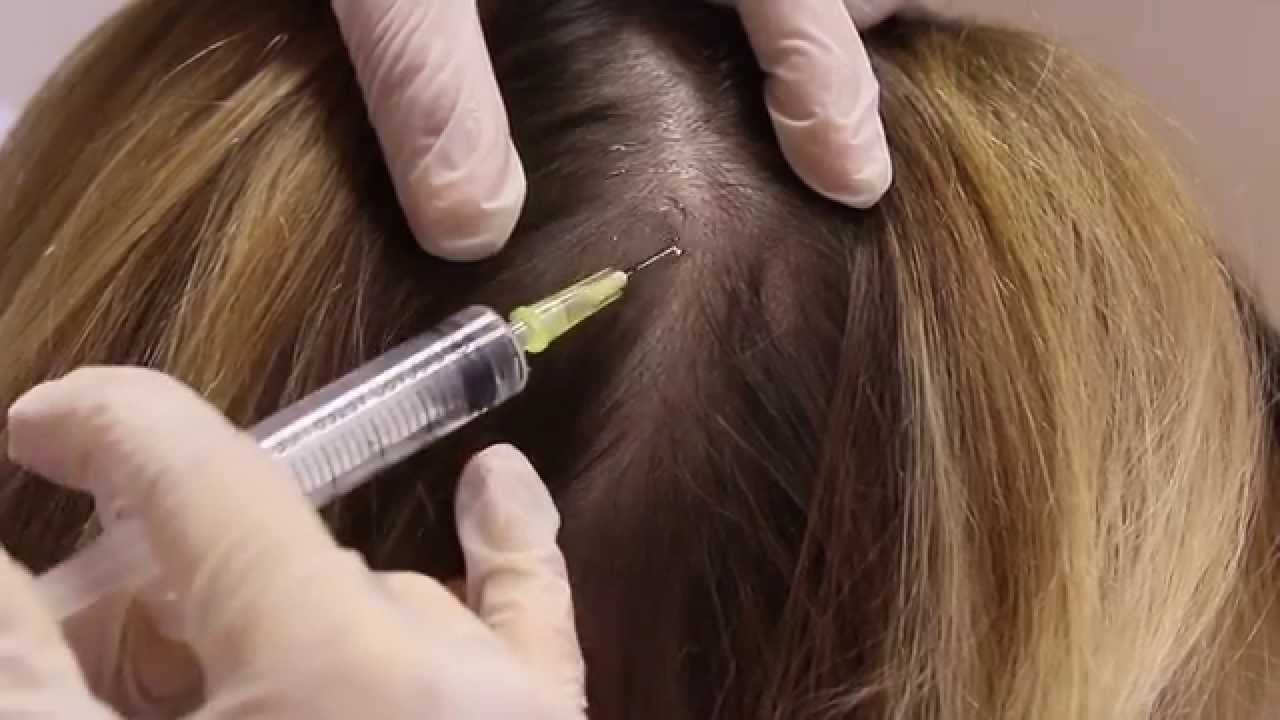
What are the types of hair loss?
Some types of hair loss are permanent, while others are temporary. The most common types of hair loss include:
• Androgenic Alopecia: This type of hereditary baldness can affect anyone (male pattern baldness or hair loss in women).
• Alopecia Areata: Alopecia areata is an autoimmune disease that results in hair loss from the head and body.
• Telogen Effluvium: This type of hair loss involves rapid shedding of hair in a short amount of time. It typically happens a few months after your body goes through something physically or emotionally stressful. It can also result from sudden hormonal changes.
• Anagen Effluvium: This very rapid hair loss occurs due to certain medical treatments, such as chemotherapy.
What causes hair loss?
Hair loss has many possible causes. The most common include:
• Hereditary hair loss from genetics (genes you inherit from your parents)
• Fungal infections on the scalp
• Hairstyles that pull the hair tightly (such as braids, hair extensions or tight ponytails)
• Haircare that may cause damage due to processing (including perms and bleach)
• Hormonal changes (such as pregnancy, childbirth or menopause)
• Medical treatment (such as chemotherapy and certain medications)
• Nutritional deficiencies (especially not getting enough iron or protein)
• Stressful events (like having surgery or losing a loved one)
• Thyroid disease
• Vitamin D deficiency
What are the symptoms of hair loss?
People experience hair loss in different ways, depending on the type of hair loss and what’s causing it. Common symptoms include:
• Receding hairline (typical of male pattern baldness)
• Thinning hair all over the head (typical of female pattern hair loss)
• Loss of small patches of hair on the scalp
• Loss of hair on the scalp and body
How is hair loss treated?
If your hair loss results from medication, hormonal imbalances, thyroid disease or diet, your provider will address the cause. Correcting the underlying problem is often all that’s needed to help stop hair loss.
Most hair loss treatments are meant to deal with androgenic Alopecia majorly(male and female pattern hair loss), followed by Telogen effluvium. Various treatments as per your indication are:
* Medication: various depending on hair loss cause
* PRP Therapy, Meso therapy, stem cell therapy, exosome therapy
* Hair Transplant if indicated- During a hair transplant, your provider carefully removes strands of hair from an area of your scalp where the hair is thickest. The provider then transplants those strands, embedding them into your scalp where your hair is thinnest.
Hair Transplantation techniques
Depending on the patient’s needs and doctor’s diagnosis, the surgeon recommends any one of the three methods available for hair transplant.
The three types of hair transplantation are
* Follicular Unit Transplant (FUT)
* Follicular Unit Extraction (FUE)
* Advance Hair Implantation (AHI)
Eye Testing History.
- Online Booking
- Сovid 19 Protection
- Own Laboratory
- 24/7 Service



